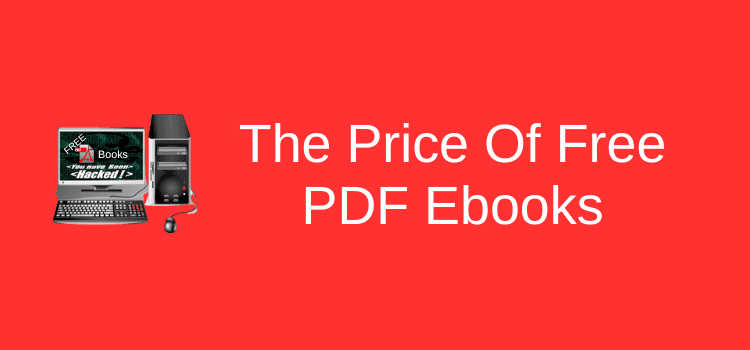
Free PDF ebooks might seem like a real bargain until one infects your computer with a virus or malware.
Every day, thousands of readers search for “download PDF book free” without realizing the potential dangers.
Pirated ebook sites often hide spyware, malware, or tools designed to steal your data.
Before you click an ebook download button, it’s worth understanding what you could be loading onto your device.
Why free PDF ebooks are everywhere online
An article in the Guardian explained how one large site, OceanofPDF, was closed down.
A quote from the article explains why the site owners believed that it was okay to copy and distribute copyrighted books illegally.
OceanofPDF had stated on its site that it sought to make information “free and accessible to everyone around the globe”, and that it wanted to make books available to people in “many developing countries where … they are literally out of reach to many people”.
Well, it was down for a while, but the site is now operational again..
If you need to get an idea of how big this free ebook in PDF business is, you don’t need to look very far.
PDF Drive has over 79 million books available, and the number is likely increasing by the minute.
I discovered that the last book I published was pirated in PDF within a week of publication. It was also available in print books on Google Books.
As an author, you might think you are safe from all this piracy because you publish your ebooks with DRM (Digital Rights Management).
It is not true at all. Unfortunately, DRM offers no real protection because pirates can strip it from a Kindle or an Apple book in seconds using simple tools.
The PDF conversion then takes less than a minute.
But there is no such thing as a free lunch for freebie ebook hunters.
The real cost of downloading pirated ebooks
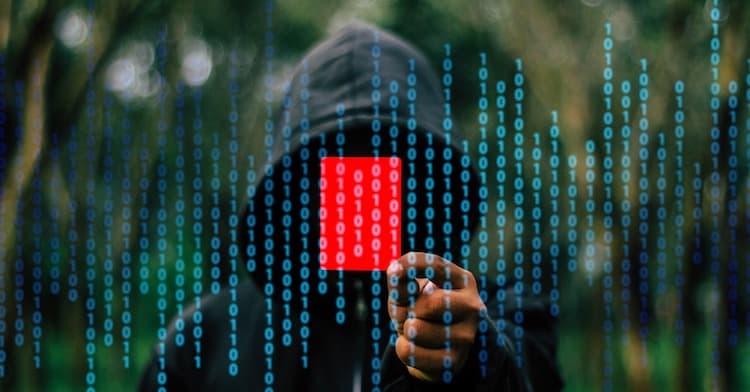
Some sites, like OceanofPDF, offered free PDF ebooks under the belief that they were performing a public service.
But other free ebook sites have a very different aim.
A PDF file is an open file format.
Therefore, it is very easy to attach almost any type of malicious file to it, helping to spread malware or viruses.
Malware, or malicious software, is any program or file that is harmful to a computer user. Malware includes computer viruses, worms, Trojan horses, and spyware.
Many people thought they were getting a great deal by downloading the bestseller “Fire & Fury” for free.
But it turns out that it was laden with malware, according to Security Zap.
WccfTech covered the same story.
The following quote from the article highlights the determination of hackers.
“The malicious file bringing Fire and Fury also brings with it a Windows executable file, that appears to be a backdoor giving criminals access to the victim’s computer. ”
If you add an infected file to your computer drive from a download, you are taking a considerable risk.
However, many people happily download all sorts of files because they are free.
Yes, it is just so tempting.
You can get more than you expect
But free ebook hunters could be paying far more than they think.
One free book download by a computer user could allow their personal information to be stolen, credit card numbers copied, or their operating system infected by viruses and worms.
Even with anti-malware or antivirus protection, if you don’t update it, the computer system is not necessarily safe. Malware attacks can also occur on Android devices.
The best way to protect against malware is not to download pirated files.
Pirates steal and copy books, and they are criminals; criminals never do anyone a favor.
Think about it next time you are tempted by thousands of free ebooks.
Is one free book from a pirate worth the price of an infected computer and them gaining access to all your private data?
Can EPUB and MOBI files contain viruses?
While not as prevalent as malware or viruses in PDF files, an EPUB file can contain malicious code.
According to Norton, an antivirus software company, EPUB, ZIP, and EXE files can contain malware that could infect your computer with a virus.
Additionally, an article on Tendenci (which is no longer available) appeared to confirm that Kindle Mobi files could also transport malware.
It said that EPUB and MOBI files can contain viruses or malware, just like many other file formats.
It doesn’t seem to matter what the file type is. When you download free ebooks from untrusted sources, you take a risk.
Piracy has been a persistent issue for years. So don’t think for a moment that it will ever go away.
If you are an author and worried about book piracy, ignore it and forget about it. It will happen, and there is nothing you can do about it.
Pirates can get a copy of your ebook when it is free on Amazon or perhaps from Kindle Unlimited. But I am not sure about that one just yet.
But it would not surprise me. If your book is reasonably popular, pirates might even buy it to create a copy.
As I mentioned earlier in the article, one site is offering over 70 million free books in PDF format, making it a fight you will never win.
Why paying for books is smarter

Some ebook readers might think that authors are elitists for wanting to be paid for their work and that their books should be free. Well, the joke could well be on you.
If you don’t want to pay for an ebook, well, so be it.
But a few bucks for an author is a lot less than the cost of removing a computer worm, virus, or any form of malware from your computer or phone.
Free ebook hunters are rarely proficient in computer maintenance, so the repair will be expensive.
A few dollars is a lot less than having your credit card number stolen and having thousands of dollars spent with it by criminals.
A couple of dollars is the cost of a cup of coffee. Would you accept a free coffee in exchange for your sensitive personal information?
A miserly reader can afford to pay for a new iPhone, Galaxy Note, or laptop. But one malicious file and the shiny new expensive device is a brick.
All for the belief that paying a few dollars to an author is too expensive.
Of course, you can take that risk, but ask yourself, is saving a few dollars really worth the cost of compromising your device or personal data?
The author might lose a few bucks, and so what?
But you, dear thrifty reader, could end up paying a much higher price.
Are there any safe alternatives?
Yes, you have choices that offer thousands of free and legal ebooks.
Safe alternatives:
Free Kindle books on Amazon
Best practices:
Only download from trusted sites (e.g., library collections, official publishers).
Always keep your antivirus software updated.
Never open unknown .exe or zip files bundled with ebooks.
Conclusion
Nothing is free.
While there are free trials of products, free and premium services, and apps, as well as free ebooks, and, of course, free Facebook, there is always a price to pay.
Theft of your data is the most common price you pay, as we all discovered from the Facebook and Cambridge Analytica episode.
As far as books are concerned, though, the easiest, safest, and most cost-effective way to read a book is to go to a library or buy it.
If you’re looking for a bargain, visit a secondhand bookstore.
But for some, the good old-fashioned idea that everything should be free is always better.
But at what price?
Related Reading: Amazon Can Penalize Authors Because Of Ebook Piracy

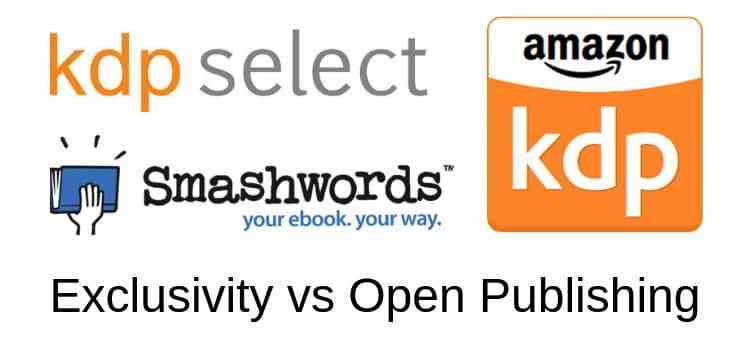
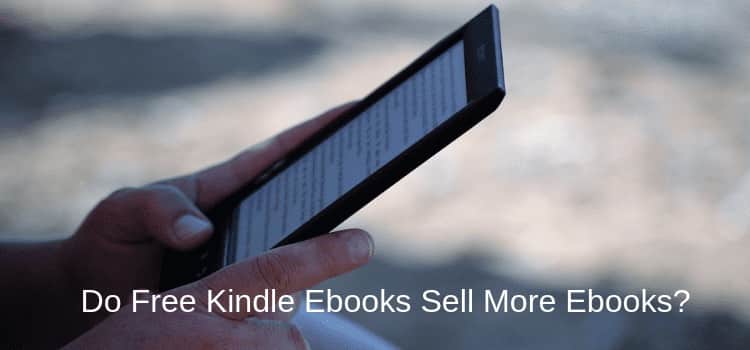
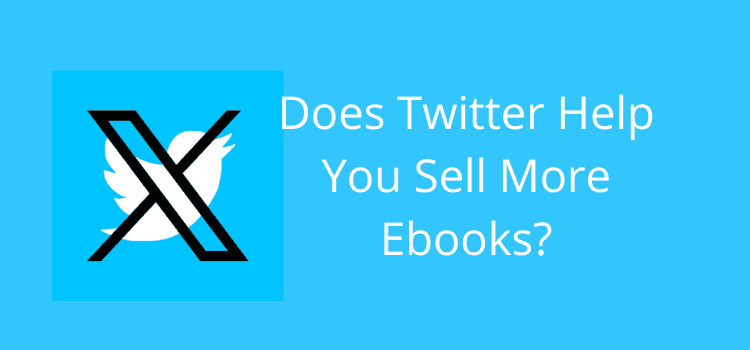
In your article you have posted: “….take a look at this site. I hate giving this site a link…” Is it one of the infected links since you did not name it but you lure people to click on it LOL
Hello Barb. The link is safe. But I would suggest that you don’t download any of the books listed on the site.
While the warning about “free” downloads is thoroughly valid, the assumption that they only attract “cheap” readers is ridiculously simplistic. You don’t acknowledge that many readers abhor the notion of spending money on broken files that can be stolen back from them without warning at the publisher’s/retailer’s whim. Over my lifetime, I’ve expressed my appreciation of authors with literally tens of thousands of book purchases, but the situation with ebooks stymies me. There are a few honest publishers (eg Baen and Tor-books) who sell DRM-free ebooks, and I happily purchase from them, and from the list of authors who offer their back-list through Smashwords or similar. As for the others… Not only are they prepared to cheat me with a damaged product, they add insult to injury by warning me ahead of time that they’ll take my money and give me crap. I do occasionally throw away my money on (cheap/sale) DRM-damaged goods, on the optimistic assumption that it will remain unlockable at least long enough for a single read, but believe me, whenever I do it, I feel like I’m tossing money at a digital-age version of organized crime. I love the convenience of ebooks when I can get them from honest sources, but so long as DRM cripples the industry I don’t find it at all surprising that some people make stupid choices about their sources. I’m certain that for many of them, it has nothing to do with cheating an author; rather a desire to avoid being openly and proudly cheated by a publisher. Online music sales eventually grew up past this unfortunate stage, but sadly there seems to be little sign of it happening here.
Excellent post. This should be read by everyone in the world. I’m reading this on iPad, and reblog button don’t appear. When I get home tomorrow, I’ll reblog it when I get on my pc.